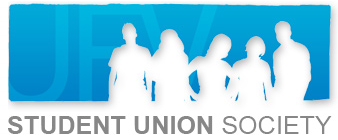By Dessa Bayrock (The Cascade) – Email
Print Edition: November 16, 2011
Tuition has more than doubled over the last decade, and government funding to post-secondary education has fallen by almost 10 per cent. This is where “Where’s the Funding” steps in, which is a campaign organized by the Student Labour Action Project (SLAP) and United States Student Association (USSA) that’s seeking more funding for students. The campaign got off the ground in the Lower Mainland this past September with the involvement of the UBC, UVic and SFU student union societies, and has since expanded to include student unions from Langara, Capilano, and UFV.
“With rising demand for higher education and current economic trends, colleges and universities are being stretched beyond their limits,” explained Kate Nickelchok, Vice President Academic at UFV’s Student Union Society. “We are… committed to working together to improve the condition of post-secondary [education] in B.C.”
The movement is still new, but the coalition of student union societies already has high hopes for the future – they hope to see the B.C. government waive interest on student loans, reinstate a needs-based grant system for students with no funding available to them, and make an overall increase to core funding for post-secondary institutions. In short, they want the government to take financial pressure off students.
As Nickelchok said, “We’d like to see operating grants increase to meet the actual need of our institutions.” Students are painfully aware that over the last decade the cost of living and schooling has skyrocketed – it is the goal of WTF to ensure that students don’t have to deal with that entirely by themselves.
SUS and WTF hope to start ramping up awareness in the winter semester with events and petitions. For now, their main focus is on a letter-writing campaign to Naomi Yamamoto, B.C.’s Minister of Advanced Education – they hope that if the government sees individual students speaking out, they can, as a whole, encourage the making of changes. “The reality of post-secondary education in B.C won’t change through engaging any one person alone,” said Nickelchok. “WTF is about amplifying student demands and getting our voices heard in B.C., not letting [post-secondary education] fall off the provincial government’s radar.”
Every student has heard or experienced the horror stories of working multiple jobs and still struggling to pay for rent and school. Nickelchok herself has “lived the stereotype of a penniless student – living off ramen noodles.”
“To me, though,” she added, “the most horrifying stories are of individuals who simply never got to campus, because they [were] never… able to commit to a post-secondary education. They simply never got the chance. Being from a lower-income background shouldn’t be a debilitating reason for not pursuing higher education.”


